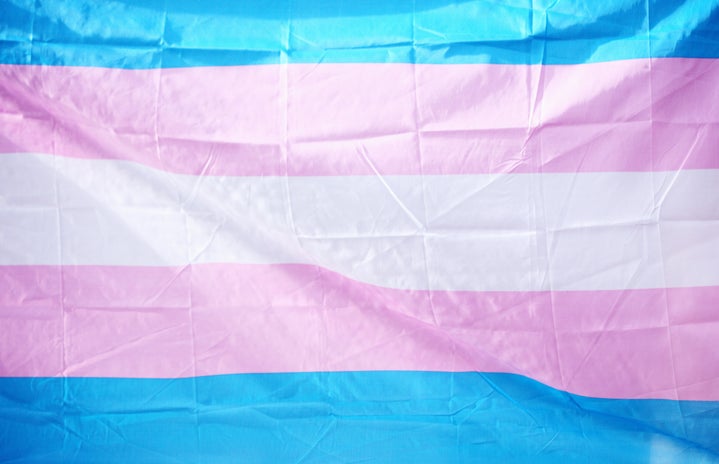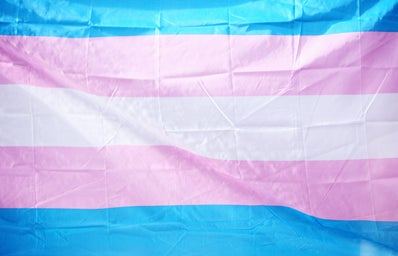In November, Transgender Awareness Week and Transgender Day of Remembrance were observed to increase the visibility of trans people and to raise awareness about the issues that the community faces. Many transgender activists of color spoke out about their frustrations with the lack of amplification, resources, and outreach there has been to their communities in Utah. Daniel Romero, 21, is a transgender Latinx activist in Utah who hopes that people will make an effort to become more informed about the diversity of the transgender experience.
The intersectional experiences of trans people can make people outside of these communities uncomfortable. Romero says that this discomfort translates into hate and the need to “politicize me and my body,” because they are “misinformed.” Romero says that in high school, “I didn’t feel safe as a person of color in the queer spaces I could find at school because they often centered white voices and I also didn’t feel like I fit in as a trans man among other Latinx students.”
Utah school districts have historically lagged when it has come to creating an accepting and safe environment for queer and transgender students. “The transgender experience is still too taboo to talk about in schools,” says a school counselor in Utah. “There are still misconceptions that if you talk about it in the classroom, somehow you’re indoctrinating kids.” She says that her school has had to put several students on suicide prevention plans this year. All of them identified as LGBTQ+ and many of them as people of color. In Utah, suicide remains a leading cause of death among LGBTQ+ youth.
Across the United States, there has been a record-breaking number of anti-trans legislation in the past year. In Utah, two anti-trans bills were introduced during the legislative session in 2021. According to ACLU Utah, one bill proposed banning transgender athletes from playing in women’s sports and the other would prohibit a physician or surgeon from performing a “transgender procedure” on a minor. This type of anti-trans legislation has led to an increase of targeted violence against transgender communities and attempted suicide within the transgender community. Transgender women of color are often hit the hardest. The HRC has found that the majority of transgender people that were fatally shot or killed this year and in previous years have been Black and Latinx transgender women. In the U.S., over 54% of multiracial transgender individuals have attempted suicide because of the racism and anti-trans discrimination they experience on multiple levels. So, what is being done?
As a response to the increased violence and attacks on transgender people and their rights, many LGBTQ+ organizations have committed to amplifying the voices of trans people of color and increasing outreach to trans communities in need. This has many trans activists of color, including Romero, questioning whether they will follow through. According to Romero, “White cisgender people often take center stage in Utah’s LGBTQ+ community.” However, that’s not to say that transgender people of color and trans undocumented folks are not doing the work. On the contrary, various organizations and events are being created by and for their intersectional communities. From Unidxs to Existimos to Project Rainbow, QTBIPOC are working non-stop to provide their communities with resources and services that can otherwise be inaccessible. Shelby Hearn, who is the Coordinator of Education and Outreach at the University of Utah’s LGBT Resource Center, says that more must be done to amplify these organizations and the QTBIPOC community as a whole. She says, “The LGBT Resource Center has begun to focus more on centering queer and trans students of color this past year,” and hopes to get more funding and resources to start programming for queer and trans students of color specifically.
Although there has been substantial progress for the LGBTQ+ community in Utah and the United States, those gains can obscure the critical needs of trans people of color. The rights and lives of trans people of color are being threatened every day and there is little coverage of it in the mainstream media. Many prominent LGBTQ+ organizations in Utah have only now begun to amplify the voices of queer and trans-BIPOC. For Daniel Romero and other activists, the work doesn’t stop until trans people of color are guaranteed full protection of their rights and lives.
Works Cited
- Ronan, Wyatt. “2021 Officially Becomes Worst Year in Recent History for LGBTQ State Legislative Attacks as Unprecedented Number of States Enact Record-Shattering Number of Anti-LGBTQ Measures into Law.” HRC, 2021, https://www.hrc.org/press-releases/2021-officially-becomes-worst-year-in-recent-history-for-lgbtq-state-legislative-attacks-as-unprecedented-number-of-states-enact-record-shattering-number-of-anti-lgbtq-measures-into-law.
- Stevens, Taylor. “First-of-Its-Kind Report Addresses Ways to Reduce Suicide among Utah’s LGBTQ+ Community.” The Salt Lake Tribune, 23 Sept. 2020, https://www.sltrib.com/news/2020/09/23/first-of-its-kind-report/.
- Stevenson, Jason. “ACLU of Utah – Help Us Stop HB302.” ACLU of Utah – Home, ACLU of Utah, 1 Mar. 2021, https://www.acluutah.org/legislation/legislative-work/item/1694-hb-302-2021.

